Oxford University Press
Works by Professor Raghavan Iyer published by Oxford University Press.
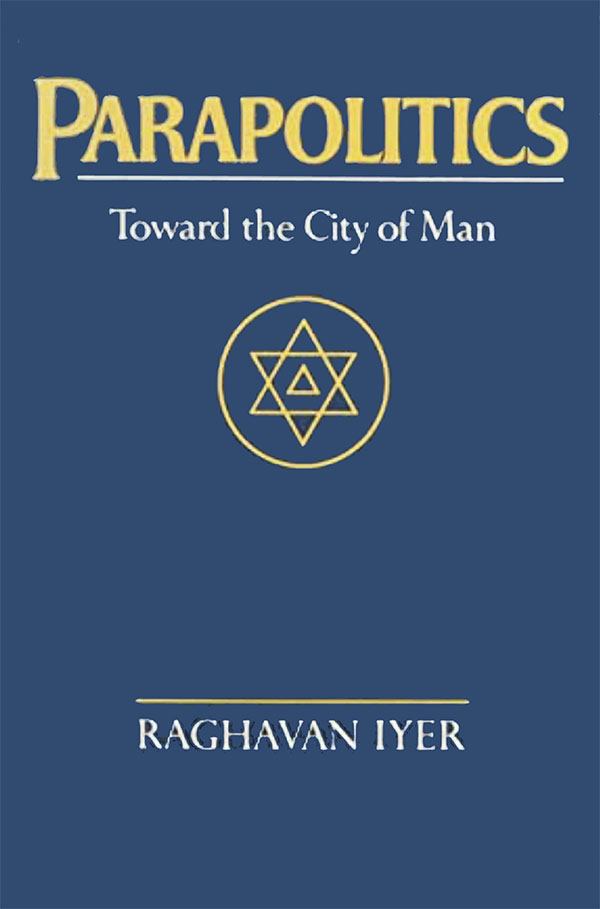
PARAPOLITICS
What is living and what is dead in contemporary political ideas, traditional beliefs and inherited allegiances? How may a better future be constructed from our complex past? Considering such questions, Parapolitics unveils a radical new perspective extending far beyond the pessimism of the current predicament. Raghavan Iyer moves with ease from the Greek polis to the California communes, from the psychology of self-actualization to the dynamics of social structures. He shows the critical distance needed to see clearly the costs of commitment, the limits and possibilities, in a global community. The book explores the subtle relationships between technology and politics, democracy and liberty, scarcity and abundance.
Parapolitics calls for audacious diversity and dialectical skill in the responsible exercise of will and imagination. By distilling the ideas of seminal political thinkers from Socrates and Plato to Marx and Gandhi, the book provides a firm basis for a fresh vision of Civitas Humana — The City of Man.
Available from Concord Grove Press: HERE
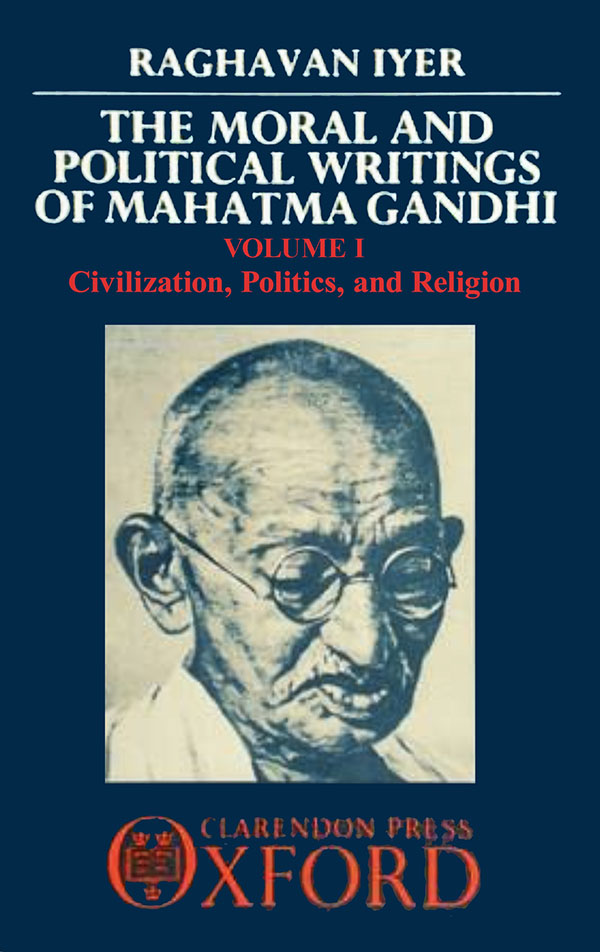
THE MORAL AND POLITICAL WRITINGS OF M.K. GANDHI
These three volumes bring together the seminal writings of Mahatma Gandhi in an accessible form. Throughout his life Gandhi wrote innumerable articles and kept an enormous correspondence. The Collected Works of Gandhi run to ninety volumes. The editor of this series has selected the most important of Gandhi’s writings on morality, politics, religion, non-violent resistance, and a host of other topics, all of which illuminate the life and thought of this great man of whom Einstein said, “Generations to come will scarce believe that such a one as this ever in flesh and blood walked upon this earth.”
Available on Amazon HERE.
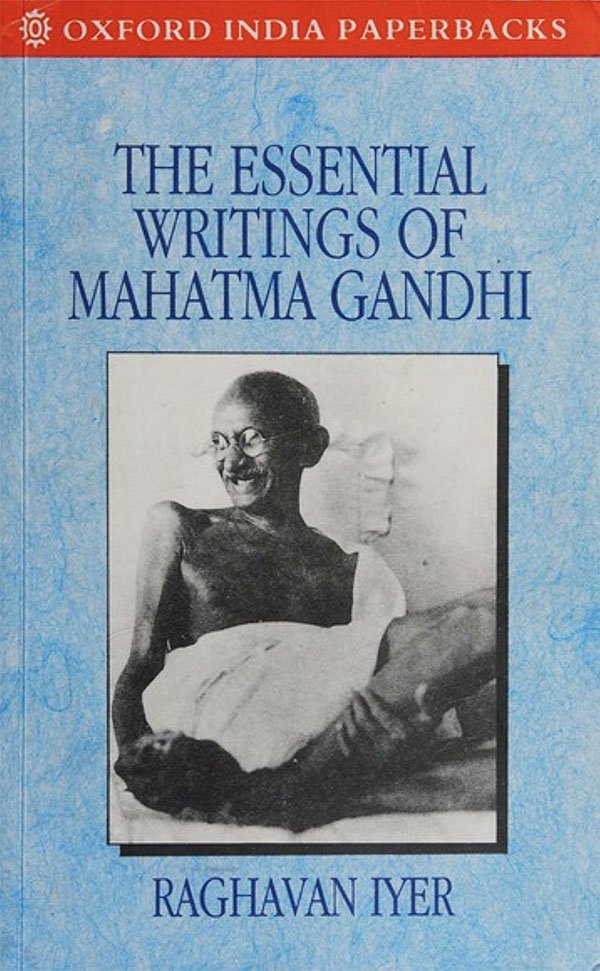
The Essential Writings of M.K. Gandhi
Available through Oxford University Press HERE.
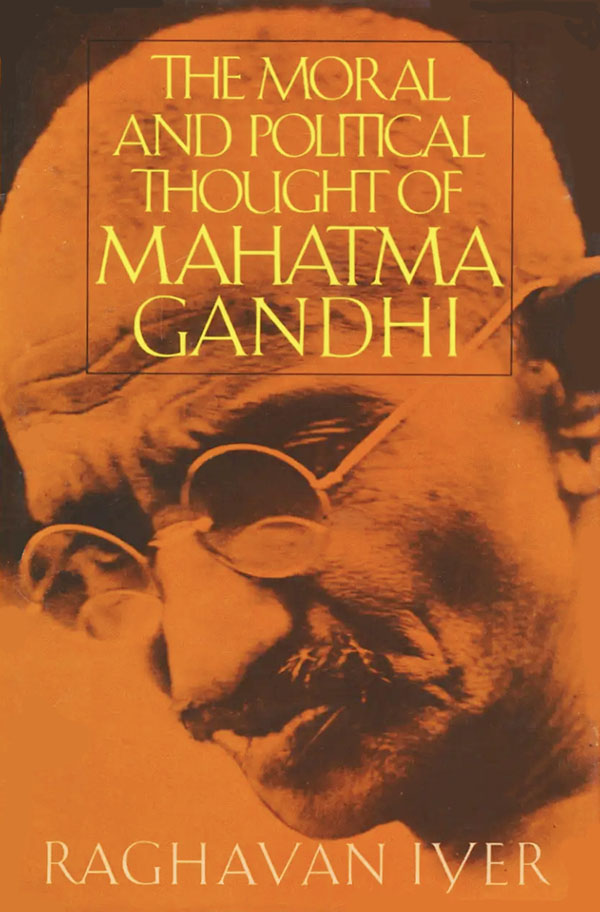
The Moral and Political Thought
of M.K. Gandhi
The Moral and Political Thought of Mahatma Gandhi was first published in 1973 by Oxford University Press and reissued in 1978 as a Galaxy Book. It was a main selection for the Library of Political Studies in 1974 and an alternate selection for The Library of Political Affairs in the same year. It has received international acclaim as an authoritative and masterly exposition of Gandhi’s thought.
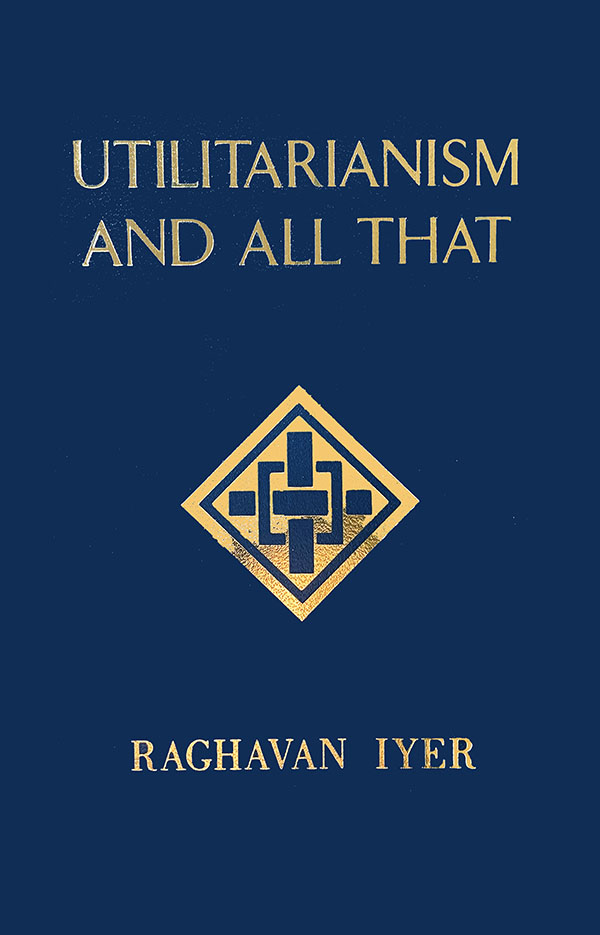
Utilitarianism and All That
Utilitarianism and All That deftly unravels the main strands of British imperial policy in India from Hastings to Attlee. This brilliant work, first published by Chatto & Windus, London, in 1960, has become an international classic.
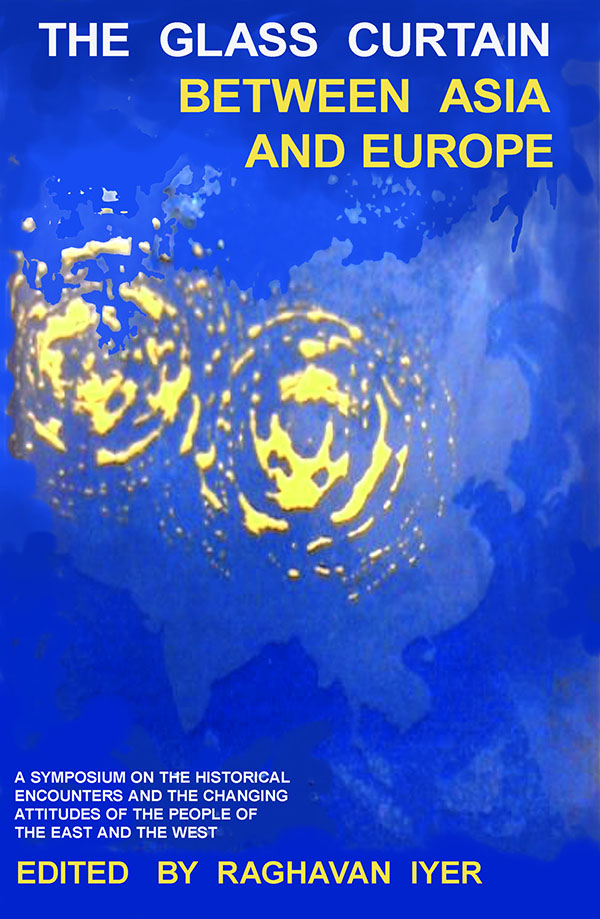
The Glass Curtain between Asia and Europe
In 1959, as part of UNESCO’s major project of East-West understanding, Raghavan Iyer and Arnold Toynbee were asked to participate in a radio broadcast dialogue undertaking a constructive appraisal of the barriers and bonds of mutual understanding between Asia and the West. A symposium was then formed, inviting a number of authors to each compose an essay commenting on the themes and issues presented. What was collected and set down in this book was intended as material for an inquiry that may be pursued in schools and universities or by institutions. A gracious foreword by the XIV Dalai Lama blesses the undertaking and a transcript of the original dialogue is included as appendix. First published in 1965.
